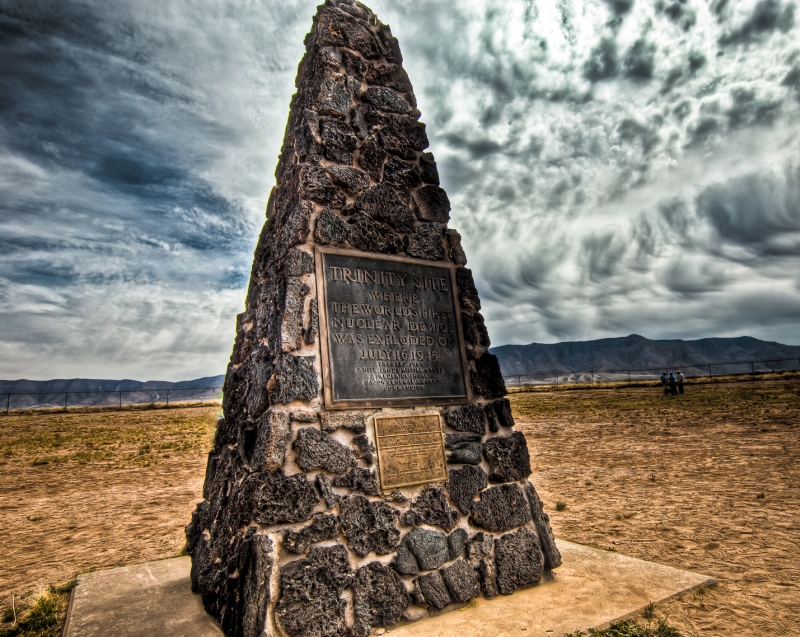File:Nukes put on high alert.png: Difference between revisions
Siterunner (talk | contribs) No edit summary |
Siterunner (talk | contribs) No edit summary |
||
| Line 21: | Line 21: | ||
(WSJ) - ''Russian President Vladimir Putin ordered his defense minister and chief of the general staff “to transfer the Russian army’s deterrence forces to a special mode of combat duty.”'' | |||
''Mr. Putin cited the threat of Western sanctions and what he described as aggressive statements from North Atlantic Treaty Organization officials.'' | |||
''The move would place Russia’s network of nuclear missiles, which is usually disconnected, into a state where it can be used if necessary—one step away from an actual missile launch, said Pavel Podvig, a Geneva-based expert on Russia’s nuclear forces.'' | |||
''He added, “I’ve not seen anything to suggest this has been done before.”'' | |||
Revision as of 17:07, 27 February 2022
Sunday, February 27, 2022
Nuclear Alert Status
Amid escalating war in Ukraine, Russia's President Putin is reported as ordering nuclear weapons placed on "high alert".
The world must now hope there is no accidental use, or preemptive tactical use, or mistake/miscalculation, or other in a chain of cataclysmic command decisions.
Feb 27 (Reuters) - President Vladimir Putin's move to put Russian forces on high alert is dangerous and irresponsible and adds to the Russian leader's aggressive pattern involving Ukraine, NATO Secretary General Jens Stoltenberg said on Sunday (Feb. 27).
"This is dangerous rhetoric. This is a behavior which is irresponsible. And of course when you combine this rhetoric with what they are doing on the ground in Ukraine - waging war against an independent, sovereign nation, conducting full-fledged invasion of Ukraine - this adds to the seriousness of the situation," Stoltenberg said on CNN's "State of the Union" program. ...
WASHINGTON (Reuters) - The United States and NATO on Sunday condemned Russian President Vladimir Putin's order to put his nuclear forces on high alert as dangerous and unacceptable, while the White House said it was considering imposing new sanctions on Russia's energy sector.
In issuing the order to prepare Russia's nuclear weapons for increased readiness for launch, Putin cited "aggressive statements" from NATO allies and widespread sanctions imposed by Western nations...
(WSJ) - Russian President Vladimir Putin ordered his defense minister and chief of the general staff “to transfer the Russian army’s deterrence forces to a special mode of combat duty.”
Mr. Putin cited the threat of Western sanctions and what he described as aggressive statements from North Atlantic Treaty Organization officials.
The move would place Russia’s network of nuclear missiles, which is usually disconnected, into a state where it can be used if necessary—one step away from an actual missile launch, said Pavel Podvig, a Geneva-based expert on Russia’s nuclear forces.
He added, “I’ve not seen anything to suggest this has been done before.”
File history
Click on a date/time to view the file as it appeared at that time.
| Date/Time | Thumbnail | Dimensions | User | Comment | |
|---|---|---|---|---|---|
| current | 16:42, 27 February 2022 |  | 640 × 267 (85 KB) | Siterunner (talk | contribs) |
You cannot overwrite this file.
File usage
The following 3 pages use this file:
- Anthropocene
- Eurasia
- Environmental Security
- Environmental Security, National Security
- Europe
- European Union
- Global Security
- Green Graphics
- Green Party
- Green Politics
- Middle East
- New Definitions of National Security
- North America
- Nuclear Free
- Nuclear Nonproliferation
- Nuclear Proliferation
- Nuclear Weapons
- Peace
- Radioactive Pollution
- Radioactive Waste
- Russian Federation
- Strategic Demands
- Threat Multiplier
- Whole Earth
- China
- France
- India
- Israel
- North Korea
- Pakistan
- UK
- US
